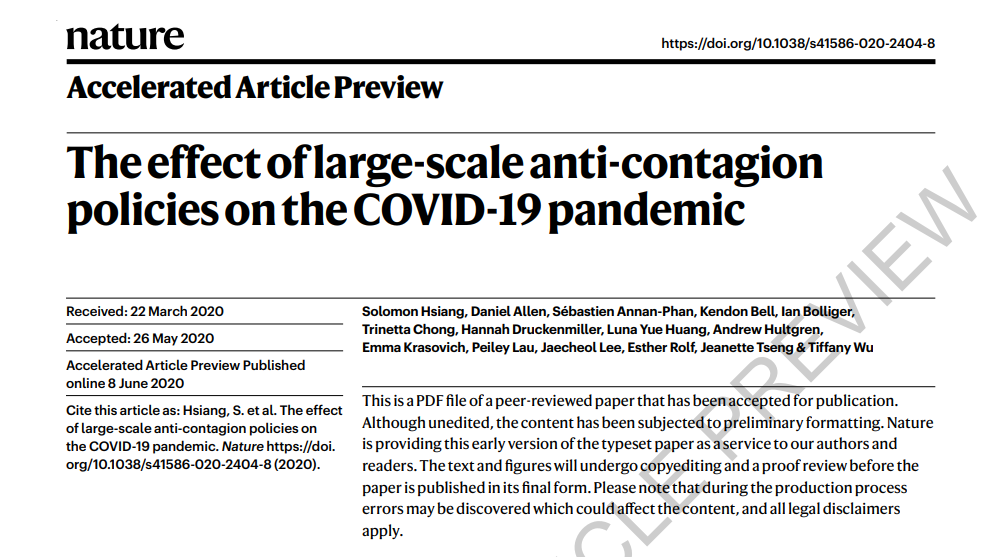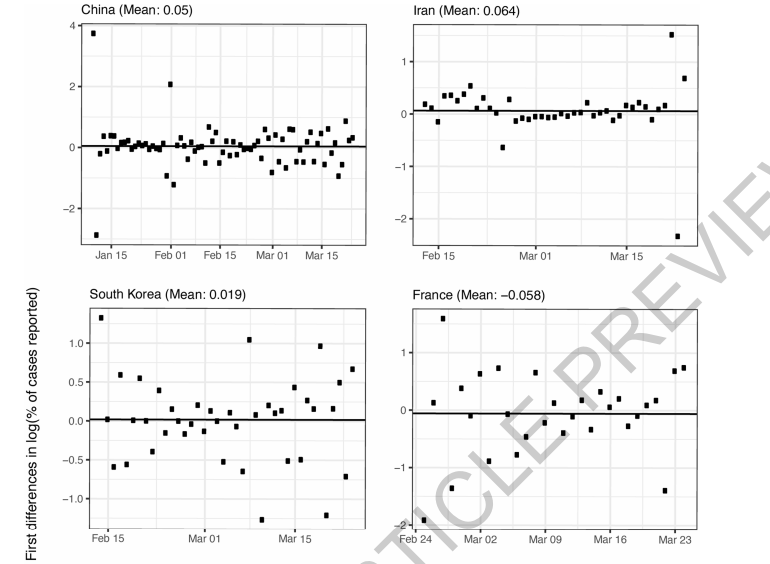
Screenshot of the article "The effect of large-scale anti-contagion policies on the COVID-19 pandemic" at Science website. (Photos: CGTN)
Interventions have prevented or delayed on the order of 62 million confirmed COVID-19 cases, corresponding to averting roughly 530 million total infections in six countries, according to a paper published in Nature website earlier this week.
"In the absence of policy actions, we estimate that early infections of COVID-19 exhibit exponential growth rates of roughly 38 percent per day," the paper titled "The effect of large-scale anti-contagion policies on the COVID-19 pandemic" said.
Researchers from UC Berkeley, National Bureau of Economic Research (NBER) and Center for Economic Policy Research compile data from China, South Korea, Italy, Iran, France, and the U.S., found that anti-contagion policies have significantly and substantially slowed this growth.
The research team estimate the effects of 1,717 policies on the growth rate of infections across the six countries, and compiles data on daily infection rates, changes in case definitions, and the timing of policy deployments, including (1) travel restrictions, (2) social distancing through cancellations of events and suspensions of activities, (3) quarantines and lockdowns, (4) additional policies such as emergency declarations, from the earliest outbreak dates to April 6.

Screenshot of the paper shows estimated trends in case detection over time within each country.
It also points out that the finding may be affected by time-invariant characteristics, such as demographics, socio-economic status, culture, and health systems.
Policies have different impacts on different areas, but the new study obtained consistent evidence that the policy packages now deployed are achieving large, beneficial, and measurable health outcomes.
These findings may help decide whether or when these policies should be deployed, intensified, or lifted, and they can provide reference for other countries affected by the pandemic.


